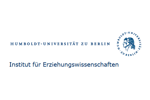Non-traditional students are defined here as students who enter higher education based on a vocational qualification instead of a school leaver’s higher education entrance qualification (Abitur). In recent years, more attention has been paid to this group both in higher education research and educational policy. The growing interest in these students can be explained by various developments:
- Demographic change, the anticipated decline in demand for academic study after 2015 and the fear of a labour shortage in highly qualified fields of work ("compensation of demand")
- Distinct social disparities in participation in higher education ("correction mechanism")
- The newly emerged orientation towards outcomes and competencies that tends to overcome the traditional segmentation between vocational education and training and higher education ("permeability")
- Finally, the political interest in "diversity" that also includes non-traditional students among several other groups of students.
In a first phase of the project the pre-academic careers of non-traditional students and their higher education pathways were analyzed. The results show that non-traditional students face more difficulties in their transition into higher education. Regarding study progress and course achievement, however, they quickly close the gap to the traditional students. Nonetheless, they are less likely to successfully finish their study course. Both problems with study performance and difficulties regarding the compatibility of family and study contribute to this effect.
The second phase of the research project concentrates on the study success, in terms of grades, duration and other characteristics of the study, and the transition after the first degree (bachelor’s degree) into a master’s programme or a professional career.
The second phase of the research project is again being conducted in collaboration with the Humboldt Universität zu Berlin. The DZHW’s main task is to analyse the NEPS (National Educational Panel Study) data on the first-year students cohort. Starting in the winter semester 2010/11, a representative sample of first-year students, including a larger group of non-traditional students, was surveyed within a panel design. This makes it possible for the first time to analyse the educational trajectories and life course of non-traditional students before entering higher education, their educational pathways, their transitions and professional careers after graduation. An important feature of the NEPS data is the possibility of comparing the educational pathways of non-traditional and several groups of "traditional" students, including those with a traditional higher education entrance qualification (Abitur). In addition, comprehensive analyses of statistical data and qualitative interviews with non-traditional students are part of the project. The main aim of the research project is to gain empirical insights into the factual ability of non-traditional students to study successfully, a question that has long been controversially discussed in educational policy.



